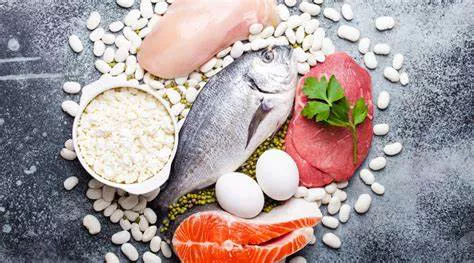High blood pressure, also known as hypertension, is a common cardiovascular condition that affects millions of people worldwide. It is often referred to as a “silent killer” because it typically has no symptoms but can lead to serious health complications such as heart disease, stroke, and kidney failure if left untreated. While medication and lifestyle changes like exercise and stress management play crucial roles in managing high blood pressure, dietary choices also play a significant part. In this article, we will explore the foods that can help prevent high blood pressure and those that are best avoided.
The Role of Diet in High Blood Pressure
Dietary factors have a substantial impact on blood pressure levels. Consuming certain foods can either contribute to or mitigate the risk of developing hypertension. The Dietary Approaches to Stop Hypertension (DASH) diet is one such dietary pattern that has been extensively studied for its effectiveness in lowering blood pressure. It emphasizes a high intake of fruits, vegetables, whole grains, lean proteins, and low-fat dairy products while limiting the consumption of saturated fats, cholesterol, and sodium.
see also: Which Things Reduce Blood Pressure
Which Foods Can Prevent High Blood Pressure?
Foods to Include in Your Diet
Fruits and Vegetables: These are rich in potassium, magnesium, and fiber, which are beneficial for blood pressure control.
Examples include bananas, oranges, spinach, kale, and broccoli.
Whole Grains: Whole grains such as brown rice, quinoa, oats, and whole wheat bread provide essential nutrients and fiber that support cardiovascular health and help regulate blood pressure.
Lean Proteins: Opt for lean sources of protein such as skinless poultry, fish (like salmon and trout), beans, lentils, and tofu.
These protein sources are low in saturated fats and contribute to overall heart health.
Nuts and Seeds: Incorporate unsalted nuts and seeds like almonds, walnuts, flaxseeds, and chia seeds into your diet. They are rich in heart-healthy fats, fiber, and antioxidants.
Low-Fat Dairy Products: Choose low-fat or fat-free dairy options like skim milk, yogurt, and cheese. These provide calcium, potassium, and vitamin D without the excess saturated fats found in full-fat dairy products.
Herbs and Spices: Use herbs and spices like garlic, turmeric, cinnamon, and basil to flavor your meals instead of relying on salt. These additions can enhance the taste of dishes while reducing sodium intake.
Foods to Avoid or Limit
Sodium-rich Foods: Excessive sodium intake can contribute to high blood pressure. Avoid or limit processed foods, canned soups, salty snacks, and fast food, as they are often high in sodium.
Saturated and Trans Fats: These fats can raise cholesterol levels and increase the risk of heart disease. Limit foods like fatty cuts of meat, full-fat dairy products, fried foods, and commercially baked goods.
Sugar and Sugary Beverages: High sugar intake can lead to weight gain and insulin resistance, which may indirectly affect blood pressure. Minimize consumption of sugary drinks, desserts, and refined carbohydrates.
Alcohol: While moderate alcohol consumption may have some cardiovascular benefits, excessive drinking can raise blood pressure. Limit alcohol intake to recommended guidelines (e.g., one drink per day for women, two drinks per day for men).
Conclusion
In conclusion, a balanced and heart-healthy diet plays a crucial role in preventing and managing high blood pressure.
Emphasize the inclusion of fruits, vegetables, whole grains, lean proteins, and healthy fats while avoiding or limiting sodium, saturated fats, sugar, and alcohol. By making mindful dietary choices and incorporating regular physical activity into your lifestyle, you can significantly reduce your risk of hypertension and improve your overall cardiovascular health.
FAQs
What should you eat when you have high blood pressure?
Eat a balanced diet rich in fruits, vegetables, whole grains, lean proteins, and low-fat dairy products.
Limit sodium, saturated fats, and added sugars in your diet.
Incorporate foods high in potassium, magnesium, and fiber, such as bananas, oranges, spinach, and whole grains.
Which fruit is good for high blood pressure?
Fruits like bananas, oranges, and berries are good for high blood pressure due to their high potassium content, which helps regulate blood pressure levels.
Can drinking water lower blood pressure?
Staying hydrated by drinking an adequate amount of water can help maintain healthy blood pressure levels, especially if you’re prone to dehydration, which can contribute to higher blood pressure.
How to reduce BP naturally?
Maintain a healthy weight through diet and regular exercise.
Reduce sodium intake by avoiding processed foods and using herbs and spices for flavor.
Limit alcohol consumption and quit smoking if you smoke.
Manage stress through relaxation techniques like meditation, yoga, or deep breathing exercises.
Get enough quality sleep and monitor your blood pressure regularly.


